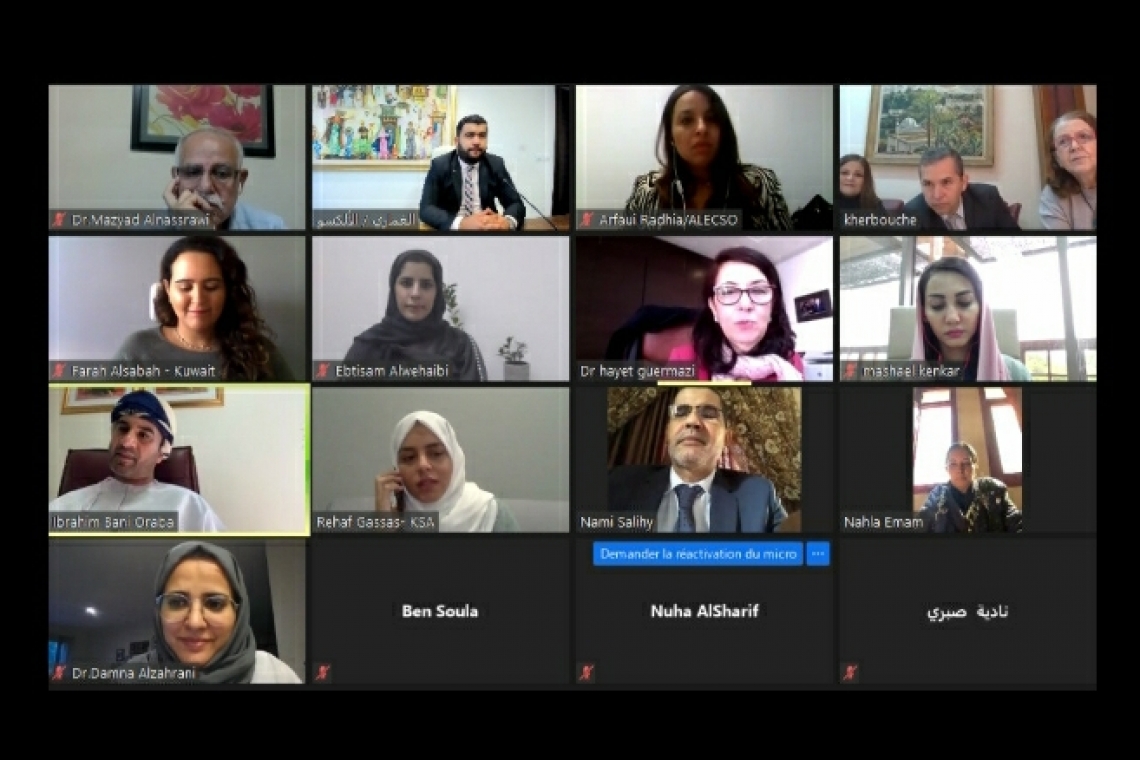ALECSO holds 5th meeting of the
Arab Experts Committee on Intangible Cultural Heritage
The Arab League Educational, Cultural and Scientific Organization (Culture Department) held, on December 1, 2020, the 5th meeting of the Arab Experts Committee on Intangible Cultural Heritage.
The meeting was held remotely under the chairmanship of Dr. Hayat Guermazi, Director of the Culture Department, with the participation of a group of experts in intangible cultural heritage from nine Arab countries.
The meeting came as part of preparations for the Arab participation in the 15th session of the Intergovernmental Committee for the Safeguarding of the Intangible Cultural Heritage, to be held on December 14-19, 2020 at UNESCO headquarters in Paris. It is designed to unify the Arab position regarding the Arab files submitted for inscription on :
UNESCO’s Representative List of the Intangible Cultural Heritage of Humanity:
Al Aflaj, traditional irrigation network system in the UAE, oral traditions, knowledge and skills of construction, maintenance and equitable water distribution (UAE)
Khanjar, knowledge of cultural and social practices (Oman)
Knowledge and practices related to cultivating Khawlani coffee beans (KSA)
Charfia fishing in the Kerkennah Islands (Tunisia)
Raï, popular folk song of Algeria (Algeria)
Camel racing, a social practice and a festive heritage associated with camels (UAE – Oman)
Traditional weaving of Al Sadu (KSA – Kuwait)
Knowledge, know-how and practices pertaining to the production and consumption of couscous (Algeria – Mauritania – Morocco – Tunisia)
UNESCO’s List of Intangible Cultural Heritage in Need of Urgent Safeguarding
Handmade weaving in Upper Egypt (Egypt).
This meeting was an opportunity to examine the shortcomings identified by the Evaluation Committee in some of the files, and to share experiences and coordinate adequate responses; thereby providing maximum chances for all Arab files to be inscribed on UNESCO’s heritage lists.



